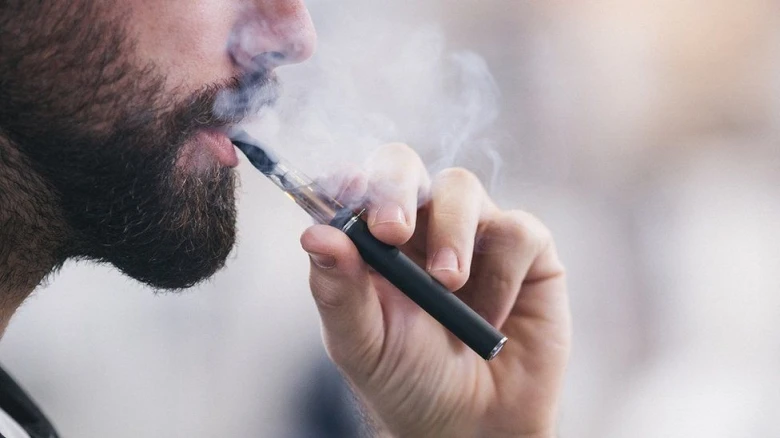National

The George Institute for Global Health researchers conducted the study to "examine educated young adults' e-cigarette-related attitudes and behaviours...
Digital Desk: A new study indicates that e-cigarettes remain a major public health challenge in India despite bans from the government, that were aimed at protecting youth from vaping-related harms. According to the report, people with a higher level of education are more likely to vape.
The George Institute for Global Health researchers conducted the study to "examine educated young adults' e-cigarette-related attitudes and behaviours, as well as their support for various e-cigarette control policies."
The findings have been published in the journal Preventive Medicine Reports, which states that a low prevalence of daily vaping was found among educated youths and that tobacco use was strongly associated with e-cigarette use in this group.
Finance Minister Nirmala Sitharaman imposed a ban on the sale, storage, and manufacture of e-cigarettes in 2019, following the recommendations of a Group of Ministers (GoM) led by her. The government stated that the decision to ban e-cigarettes is intended to safeguard the youth, who are the most vulnerable to the health risks of e-cigarettes.
According to the World Health Organization (WHO), around 27% of the Indian population uses tobacco in some form, making India the world's largest tobacco market. India is one of the few countries that has completely banned the sale of e-cigarettes.
"Despite a complete ban, young people are still able to access e-cigarettes in India. Greater education about harms associated with vaping and more intensive monitoring and enforcement could assist in reducing uptake in relatively high-prevalence groups such as educated young adults," the research paper read.
Researchers surveyed 840 tertiary-educated young adults about demographics, e-cigarette and tobacco use, beliefs about e-cigarettes, exposure to e-cigarette advertising, e-cigarette access sources, and the number of friends and family who vape.
Analysis revealed that 23% used e-cigarettes, 70% used tobacco, and 8% used both e-cigarettes and tobacco. Almost two-thirds of those who had heard of e-cigarettes thought they were dangerous and contained chemicals. Among non-users, 31% were interested in using e-cigarettes, and 23% planned to use them in the coming year, indicating a high level of susceptibility.
According to the researchers, exposure to vaping among friends and family groups is a conduit through which vaping rates will rise over time. Intense monitoring and enforcement of existing regulations would aid in preventing future uptake. "The most commonly reported reason for using e-cigarettes was 'A friend used them,'" Dr. Thout Raj, a research fellow at The George Institute for Global Health, India, said in a statement.
Leave A Comment